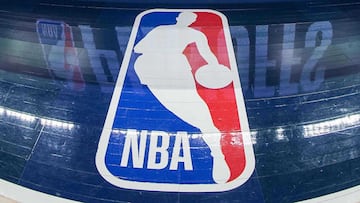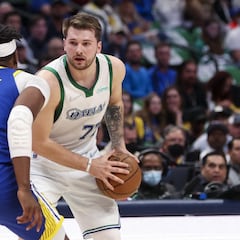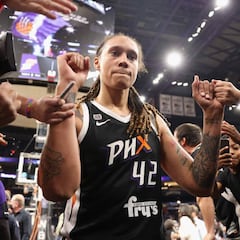Can the NBA commissioner veto a trade?
The NBA Commissioner is the highest executive position within the leadership of the league. Is it within the power of this office to veto a trade?


The NBA Commissioner, being the highest executive position within the league management, is given sweeping powers. Do these include the power to veto a trade?
If you look at the NBA Constitution and By-laws, it would appear that they do. According to Article 24, section C, “The Commissioner shall have the responsibility for the general supervision and direction of all business and affairs of the League and shall have all such other powers as may be necessary or appropriate to fulfill this responsibility.”
Other NBA stories:
- Power Rankings: Warriors fading, Sixers stay top 5
- Pay in the WNBA encourages players to get second jobs
- The WNBA's financial struggles
Powerful on paper
The part that says “shall have all such other powers as may be necessary” is quite general and could include any number of powers that are not explicitly stated. After all, the top executive needs to have a way to regulate major actions that could affect the league.
In theory, the Commissioner has to approve any player movement. In practice, however, this is just a formality. Teams are usually the ones who have the final say when it comes to transactions involving the athletes and the league rarely interferes with player trades.
Chris Paul and the Lakers
The issue of the NBA vetoing trades came to the fore and grabbed headlines more than ten years ago, when then-Commissioner David Stern stopped the execution of a three-way trade among the New Orleans Hornets, Houston Rockets, and Los Angeles Lakers.
This reshuffling would have resulted in the Hornets’ top player, Chris Paul joining Kobe Bryant and making the Lakers practically unstoppable. It was thought that the Commissioner unfairly used his position to veto the exchange, as he was not allowed to do so.
"[Chris Paul] should've been a Laker a long time ago."
— ESPN (@espn) June 22, 2021
Magic still isn't happy about the results of the Lakers' trade attempt for CP3 back in 2011.
(via @KeyJayandZ) pic.twitter.com/keOxImErZg
Related stories
Stern clarified his side of the matter and said that he did not make that decision as Commissioner; rather, he made it as a team owner, which was well within his rights, as at that time the Hornets were owned by the NBA.
In his defense, he said that Hornets General Manager Dell Demps was not authorized to make the trade, so that decision was void to begin with. He said there was nothing to cancel because the exchange was never made in the first place.

